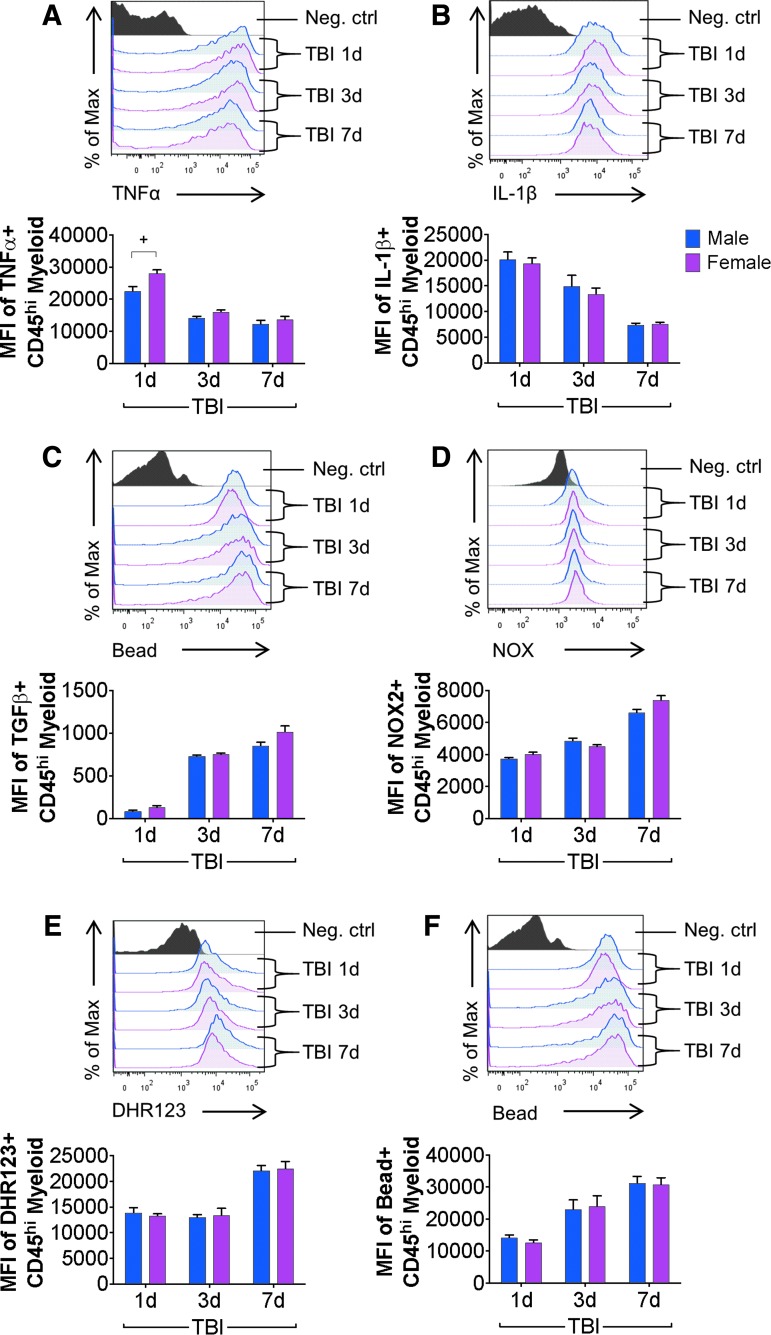FIG. 4.
Peripheral myeloid cell functional responses to controlled cortical impact (CCI) are not altered by biological sex. Flow cytometry analysis of infiltrating myeloid cells (CD11b+CD45hi) in male and female mice from sham and CCI through 7 days post-injury. In infiltrating myeloid cells, traumatic brain injury (TBI) increased tumor necrosis factor (TNF)α protein expression in males and females at each post-injury time-point. TNFα was significantly increased in females compared with males at 1 day post-injury (+) (A). TBI increased myeloid cell IL-1β protein at each post-injury time-point in males and females; however, these effects were independent of sex. Myeloid cell IL-1β levels decreased significantly over time (B). TBI increased myeloid cell transforming growth factor (TGF) β protein at each post-injury time-point in males and females; however, these effects were independent of sex (C). TBI increased myeloid cell NOX2 protein at each post-injury time-point in males and females, however, these effects were independent of sex (D). TBI increased myeloid cell reactive oxygen species levels at each post-injury time-point in males and females; however, these effects were independent of sex (E). TBI increased myeloid cell phagocytic activity at each post-injury time-point in males and females; however, these effects were independent of sex (F). Sex and injury effects were analyzed by two-way analysis of variance, and Tukey post hoc analysis was performed for multiple comparisons where +p < 0.05 for male vs. female. Mean ± standard error of the mean; n = 8-15/group. Color image is available online.

